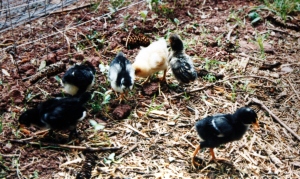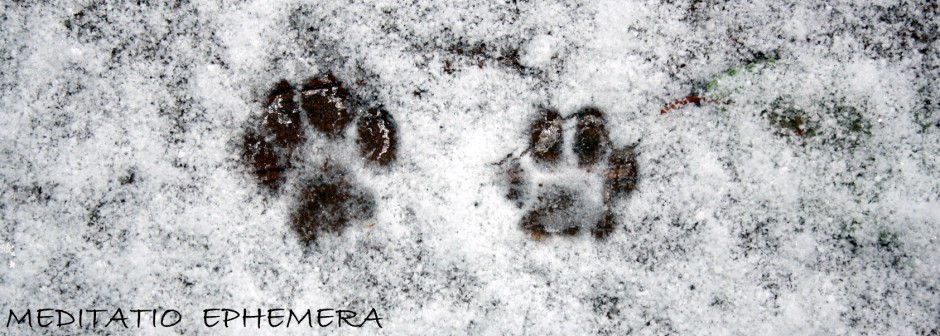 I hoped he was dead when I woke the next morning, eight hours after I left him holding the hand of the next hospice volunteer.
I hoped he was dead when I woke the next morning, eight hours after I left him holding the hand of the next hospice volunteer.
We call it “vigil:” a bearing witness and keeping company with the actively dying. We do it for them and their loved ones — exhausted, grieving families and friends — who are desperate for rest, but don’t want them to die alone.
The volunteer coordinator told me Dan — let’s call him that — had Parkinson’s disease and was ready to die. She said he had stopped taking nourishment through a feeding tube the week before, but was struggling to let go. That his 80-something wife, in poor health herself, had spent the day with him and badly needed sleep. She told me Dan liked polka music, and there were CDs I could play for him.
This last — the idea of dying to polka music — appealed to my sense of the absurd. But there was nothing even blackly comic about it. It turned out that Dan liked country classics, not polka. So as I sat at his bedside, I half-listened to songs about the kind of angsty love he had traded for marriage and family more than a half-century earlier. I gazed at long-ago photos of him in military uniform, proud and handsome and full-faced, with twinkling eyes and a winning, toothy smile.
And considered the emaciated man in the bed, his cheeks and temples sunken, his mouth agape, the dentures out and the dry lips, scabbed, curled in around the gums. And listened to the rattle in his chest, the only sound he could now make.
The nursing home staff came with medicine to loosen the phlegm, and morphine, too. They came to change Dan’s diaper and his bedding, rolling him this way and that, his thin arms and large hands floating helplessly in space. They checked his oxygen; they suctioned his mouth. They brought more morphine.
Still, his limbs contracted spasmodically; he grimaced, and gripped my hand with surprising strength. “You’re safe,” I told him. “You can trust this. You can let go.” And felt like a liar, or worse: a cliché. Because if what I said was true at all, it was true in the infinite evermore, not in the singular suffering of this particular man in this agonized moment.
Dan was awake, and in his slate-blue eyes I thought I saw pain, and a kind of bewilderment. So I stoked his greying hair and said the one thing I knew was true: I’m sorry. I’m sorry for your suffering.
I want to think that dying as Dan was dying is the back end of a devil’s bargain we make with modern medicine. That, in choosing to prolong our lives beyond what is natural, we invite a painfully protracted death. Left to ourselves, we might die younger, but also more boldly and quickly: the sudden, serious cardiac arrhythmia; the catastrophically elegant explosion of some vital vessel deep in the brain. Not the slow, attenuating poison of chemotherapy, but the late-stage cancer itself, galloping headlong through the body with clean and violent dispatch. The failing organ left to fail; the naturally deadly let be deadly.
We might, then, not suffer as Dan was suffering.
But I know it’s not that simple, that in death, as in life, there is no clear course from Point A to Point B. Nothing is certain.
I once had a black Australorp, a gentle, industrious hen, afflicted by a respiratory condition and by age. Six months earlier, I had taken her sister to the vet to be put down. But chickens have a complex physiology, so euthanizing a bird is not as simple as putting down a dog or cat. After the vet gave my hen the injection and left the exam room, I turned off the lights and held her while her breathing slowed and her head dropped limply to her breast. It took a long time, her dying, and the vet kept cracking the door, splitting the dark with jagged fluorescent light. He wanted to press a stethoscope to her chest, because she needed to die before he could go to lunch. I would gladly have pummeled him senseless had I not been holding her. So I decided to let my second Australorp, who had been fading for a month, die on her own.
But it seemed to take forever. As the days passed, her breathing became more labored; eventually, she quit walking around with the flock and took to the coop, sitting in the pine shavings. It was hard to watch; every breath was an effort. She made me consider whose suffering we most wish to end with euthanasia.
And still, she kept on, into what I was sure would be her last evening and — to my surprise — through the night. So I took my morning run and then resumed my place beside her in the coop, holding vigil. My barred rock — they’d grown up together — was pecking her gently, as if to rouse her. I shut her outside. A short while later, the Australorp gathered herself, rose slightly, stretched out her neck and then flapped her wings, as if she was flying away.
And she had.
Death came more quickly for my other hens, including the barred rock, who was the leader of that first flock and, at age 8, its last survivor. I had younger chickens by the time she died, but by then, she identified my partner Chele and I as her flock. On lazy summer days, Chele and I would lie on our backs in the grass beneath the apple tree, considering the clouds, half-dozing. And Rock would settle herself contentedly between us, close her eyes and dream chicken dreams.
I knew something was wrong when the dizzy spells started. She would seem fine, and then not, usually after having pecked aggressively at some bug or morsel. She wobbled, then righted. I knew her time was coming, and held her more, and fed her the treats she loved: the grapes and hard-boiled eggs, the peanuts and sunflower seeds. And, one day in the coop, live mealworms, her favorite.
I thought afterward that I should have known better, that the unsteadiness I had observed was a sign of imminent cerebrovascular calamity.
Rock went after the mealworms with abandon, pecking vigorously. And then made an odd sound, and stumbled, and fell. I knelt to steady her as she sat in the shavings and thought — for one desperate, delusional moment — that she might be alright. But it was already effectively done. She stood and fell again — stood and wobbled and fell — while I watched, helpless, as the seconds expanded and distorted. Sixty. Maybe 90. No more than that.
Then she lifted herself, stretched out her neck and flapped her wings. And in the way of her kind, was gone. And I stood there, fragmented: my mind denying and recoiling, my heart knowing and breaking, and the unbridgeable space between.
We put her in the ground the next morning, on a bed of pine shavings scattered with treats, beside the other hens, beneath a canopy of lilacs: my first flock, together from the start as chicks, again made whole. And I could see it had been a mercy — that death had been quick with this animal I loved, that she had not suffered.
I want death to be as Mary Oliver imagines in White Owl Flies Into and Out of the Field:
… maybe death isn’t darkness, after all,
but so much light
wrapping itself around us —
as soft as feathers —
that we are instantly weary
of looking, and looking, and shut our eyes,
not without amazement,
and let ourselves be carried,
as through the translucence of mica,
to the river
that is without the least dapple or shadow,
that is nothing but light — scalding, aortal light —
in which we are washed and washed
out of our bones.
I later learned that Dan lived for 26 hours after I left his bedside: more than a day. I thought that his dying had been too long, too hard. And hoped that death itself, when it finally came for him, had felt as soft as feathers.
I hope it will be that way for you, too, and for me, and for all of those we love, the people and the animals both.
That each of us, in our time, will leave these bodies as easily as we came into them, and — gently, gently — let ourselves be carried to some soft and brilliant place. Home. Finally home.

This post first appeared in April 2016.



This is beautiful. I’ve had chickens myself, and also stood “death watch,” at a loved ones bed. You described it so well.
LikeLiked by 1 person
Thank you. It’s good to hear from a fellow chicken-lover!
LikeLiked by 2 people
Reading this post brought tears to my eyes. So much insight. So much love. So much caring. Any being is so lucky to have you there as the end nears. Your incredible heart shines through your words so brilliantly. I feel privileged to have read this. Thank you. ❤
LikeLike
Such a generous compliment! Thank you so much for the honor of your attention and openness, and for your resonant response. It feels deeply good to be “met” in such a way.
LikeLiked by 1 person
As a society by and large, we tend to view death as a failure, of something gone wrong as opposed to a natural and normal part of living. Its complicated, as we are all organisms hard-wired to survive, making an opposition to transition fairly natural. It is my hope that we will get wiser about how we approach end of life care and when we do and don’t intervene. Personally, I am all for quality more than quantity of life, and at the same time, I have known many who long for more hours or days. Given my longing for true home, I anticipate I will struggle less than some, and of course, I could be completely wrong. Being with, companioning those on that “final” journey is sacred work.
LikeLike
Thanks for this reflection, Steph. As my father declines from Parkinson’s, these issues seem perpetually relevant. People should know that, even in facilities, they may voluntarily stop eating and drinking if they come to feel that their lives — which often have been artificially extended by medical intervention — are no longer of a quality worth living.
LikeLike
very deep expression
of being with dying, Cate!
admirable compassionate efforts
to understand and comfort.
perhaps one day hospice will be
part of grade school learning
and others will live in the light
of nature’s course. reminds me of a song:
LikeLike
Thanks, David. It would be grand for all concerned — not just human beings, but other species and our shared home — if we could become more accepting of dying as it presents, rather than trying to prolong human life (especially when we are not controlling human population).
LikeLiked by 1 person